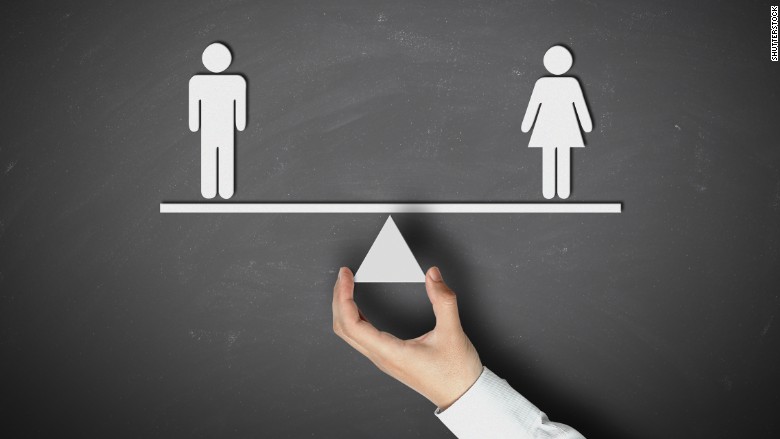
Are businesses that cater to women inherently anti-male?
Entrepreneur Stephanie Burns would say no. Burns runs Chic CEO, a startup that hosts networking events and provides online resources for female entrepreneurs.
But three men's rights activists didn't see her services as benevolent. They sued her for being denied entry to an event in San Diego.
The lawsuit cites a California law called the Unruh Civil Rights Act, enacted in 1959, which prohibits businesses from discriminating based on factors such as sex, race, religion and disabilities.
Burns told CNNMoney that men are allowed to attend her events, but that particular one was at capacity. But Chic CEO's promotional materials -- which all catered to women -- were fuel for the lawsuit. The event was described as a "fun, relaxed environment to meet up with entrepreneurs, mompreneurs, CEOs, directors, savvy business women."
Attorney Al Rava, who filed the lawsuit, said he has filed 150 sex discrimination lawsuits against California businesses in the past 12 years.
Rava, who also serves as secretary to men's rights organization National Coalition for Men, declined to talk to CNNMoney by phone. ("I do not trust you will quote me correctly or in the proper context given your leftwing, pro-female, anti-male bias," he wrote in an email.)
He said the majority of his lawsuits have been based on women being offered discounts and deals not offered to men -- on everything from car washes and theater tickets to cover charges, drink prices and dating services. About 25 of the suits have been aimed at events for women.
"As a result of all of my lawsuits, the defendants began to treat female and male consumers equally," he said, but he declined to comment on how many are ongoing or have been dismissed.
In Burns' case, she opted to settle rather than face a trial's legal fees.
"It's cheaper [to settle] than to fight it, even if you didn't do anything wrong," she said.
Burns said she is unable to discuss the financial details of the settlement but is now trying to sell her company.
"Some of these cases abuse the law. It is a really unfortunate thing," said attorney George Stephan, who has defended about 12 Unruh Act cases. (He did not represent Burns.)
The National Coalition for Men does not bring the lawsuits itself, but Rava said that he's represented "a number of members in their individual capacity."
NCFM President Harry Crouch said membership in the organization was irrelevant to the lawsuits. Members may have a "heightened awareness against discrimination against men," he said. (Crouch is individually listed as a plaintiff in Burns' case.)
On behalf of the organization, he said he sends warnings to businesses, sponsors and event organizers, informing them that they are violating the Unruh Act. These have included women's bicycling events, a major golf tournament and ladies' nights.
"Men are often ignored, discriminated against, and denied entry to these business conferences, networking events ... solely because of their sex," Crouch wrote in an e-mail.
Most recently, he sent a warning to Geek Girl Corporation for an upcoming conference.
With the current focus on women in tech and engineering, some in Silicon Valley fear that that unless something changes, other entrepreneurs will become targets. Women.VC launched a petition on August 7 to unite venture capitalists and entrepreneurs to help change the law.
"Considering the hype around women entrepreneurship and women-targeted products on the market right now, it may be necessary to adjust the legislation accordingly," said Renata Akhunova, a board member of Women.VC.

